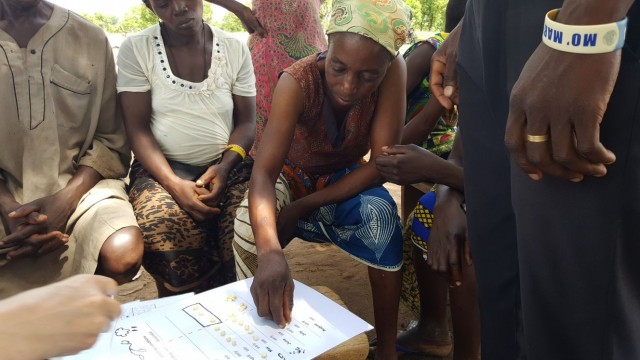
Considering the health sector as an important user of Hydromet information
5th October 2017
In September, I was able to attend the AMCOMET, African Ministerial Conference on Meteorology, forum in Addis Ababa. The focus of the forum was Weather, Water, and Climate Services, and the contribution of these ‘hydromet’ services to wider social and economic development is becoming increasingly evident as the reality of climate change hits both urban and rural communities across the continent.
Until relatively recently, investment in climate services in Africa focused mainly on support to safe air and sea transport. Many of the weather stations set up across the continent in the 20th century had fallen into disuse by the early 2000s, although it was at precisely this time that the need for accurate and timely hydrological and meteorological information in protecting lives and livelihoods was becoming evident at every level. Erratic rainfall patterns and the increasing frequency of extreme weather events were disrupting already fragile economic and social systems, with impacts ranging from food security and migration to transport, health, water, energy and security.
These problems have created a new demand and a new market for up-to-date, accurate climate information, from an increasingly wide range of users: small-scale farmers and agri- businesses, disaster management officials and health service providers (who need to align their supply and management systems to meet changing patterns of vector, water and wind-borne disease), energy and transport companies, and increasingly from the insurance industry which is responding to new business opportunities in Africa. Current capacity to meet the demand for timely and accurate information is, however, extremely low. According to the World Bank, Africa currently has the world’s least developed weather, water, and climate observation network, with less than 300 of its weather stations meeting the World Meteorological Organization’s (WMO’s) observation standards.
Developing demand for climate and health services
Over the past year, we have been working with the Walker Institute at the University of Reading to support a multi-sectoral analysis of climate, health and disaster management systems in Malawi and their readiness to respond to the potential health impact of climate events. This work illustrates many of the problems and opportunities arising from the application of climate science in development, where the direct and indirect impacts of climate change are felt over a range of sectors and institutions. Our objective in Malawi has been to support the development of an evidence based, climate resilient health sector; this has involved assessment of capacities, systems and information flows within and across agencies. The project has led to a very productive partnership with government, academic and civil society – and it was on issues relating to this work that we were invited to speak at WHO/ClimHealth-Africa sessions at AMCOMET.
ClimHealth-Africa is a network of Pan-African technical institutes and international partners which provides scientific leadership, capacity building, research, and policy advice to support the health sector across Africa in adopting a more proactive approach to the challenges of climate change. I spoke, along with Dr MacKenzie Dove (Walker Institute) and Dr David NGikungu (Kenya Meteorological Department) on “Developing demand for climate and health services”.
We discussed the set of tools we are developing with the Walker Institute, which identify a country’s current ‘state of readiness’ to build climate-responsive health services. This involves analysis of the underlying ‘enabling’ policy and institutional environment; investments needed in hydromet and health infrastructure for data collection and data management, and crucially, investment in university curricula and human capacity to build and sustain the climate-health evidence base.
For the first time at AMCOMET, the need to consider the health sector as an important user of hydromet information was highlighted. By focusing on the importance of a systems based assessment of the ‘state of readiness’ for closer interaction between climate and health services, we were able to reinforce the message that investments can, and should, strengthen existing services and that this process should be guided by national priorities. Together, stakeholders identified the opportunities to build an evidence base for climate-health responses which would simultaneously serve wider public health needs.
Moving from conference to action
We will continue to work towards practical solutions which enable Health and Met services to join together at every level: policy, research and the delivery of services to users in the community. For example, along with the Walker Institute, we will be working with ClimHealth-Africa in the Regional Climate Outlook fora, to find ways in which climate information can be made available to support health interventions in real time. Together, we will take forward this message of interdisciplinarity, collaboration and evidence-based practice into the Adaptation Futures 2018 Cape Town meeting. The research, action and conversation continues…
Categories: Capacity building, Climate change, Data, Ethiopia, Hydromet, Livelihoods, Malawi, Monitoring and evaluation, Nutrition and health, Policy and programme design, Resilience, Vulnerability assessment

Comments
No comments yet.
The comments are closed.